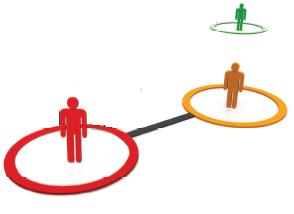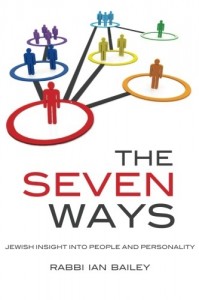Getting Rid of Triangles: Why do People Malign Others? Why Do They Drag Others into their Bad-Mouthing?
by The7Ways | Aug 31, 2012 | Rabbi Bailey’s Blog |
Getting Rid of Triangles:
Why do People Malign Others?
Why Do They Drag Others into their Bad-Mouthing?
Printable PDF-Triangles Miriam & Gossip
There are many reasons why people malign and gossip about others, such as the feeling of superiority that it brings. The Talmud and therapy experts explain why we engage in such behavior and how to void it.
“Remember what G-d did to Miriam…”
If you wish to not be [punished(1)], be careful not to relay speech that maligns (lashon hara)(Rashi)
Family therapists(2) explain that people naturally have intense anxiety when they think of confronting people about important issues. This anxiety, rooted in fear of a negative response and other stressors, causes people to avoid communicating directly to the person with whom they have a problem.

Subsequently, people communicate their problem instead to third parties. They also relieve their stress upon people other than the person they should be speaking to in other negative ways-it may be speaking rudely or pushing them to do something rudely. Each of these behaviors thereby forming a ‘triangle’—a third party that
The Biblical Miriam, mentioned in the verse above, had formerly conveyed something she was upset about to a third party who was unrelated to the situation and was subsequently punished. She received a Divinely-caused skin affliction, which forces someone, fittingly, to live outside of human contact for a certain amount of time.is now linked to the issue. Often the third party participates in receiving the negativity and playing along with the slanderer, or forms an unhealthy alliance with the slanderer.
The antidote to triangles is to push the triangle away from you to the two parties who should be having the discussion, thereby creating a single line of connection.
Detriangulate by saying “If you have a problem with them, you should speak with them”. (It also takes a tremendous burden of responsibility off of your shoulders-a huge relief!)

I even found a passage in the Talmud(3) that can be read as dealing with detriangulation. In the story in the passage, Person A was attempting to correct Person B’s behavior(4) through irritating him. When the latter leaves, Person A begins to explain the purpose of his behavior to their teacher, who is present—the famous scholar Shmuel. Shmuel, using classic Jewish & Talmudic rhetoric, says, ‘Why didn’t you say it to his face?’, thereby pushing A to speak with B himself and to do it through direct, communicative means.

Avoid triangles: don’t let yourself get sucked in, even if it’s a good friend. Learn how to approach people, even if it causes you to feel anxious. It will destroy one’s home, office, or place of worship.
Solve your solvable problems, and avoid negativity at all costs.
[To purchase The Seven Ways and better understand how to communicate with others and avoid triangles click here]
–IB
(1) The punishment Rashi brings is that one receives tzaraas –a skin affliction. Other punishments are mentioned by our Sages, as well.
(2) The idea that anxiety causes people to not confront each other about crucial issues was introduced by Murray Bowen, who is considered one of the primary people who popularized family therapy.
(3) Arachin 16b. Rav Huna and Rebbe Chiya bar Rav were once sitting in from of Shmuel. Rebbe Chiya bar Rav said, ‘[Rav Huna] is bothering me!’
[Rav Huna] accepted upon himself to no longer bother [Rav Chiya]
After [Rav Chiya] left, [Rav Huna] said [to Shmuel], ‘[I was bothering him] because he does such and such misbehavior.’
[Shmuel] responded, ‘Why didn’t you say it to his face?’
Shmuel brilliantly deflects the attempted creation of a triangle. Rav Huna was attempting to correct Rav Chiya bar Rav’s behavior. When the latter leaves, Rav Huna begins to explain the purpose of his behavior. Shmuel pushes Rav Huna to speak with Rav Chiya bar Rav himself. If Rav Huna wants to do the commandment of properly rebuking another person, he must do so in person.
(4) This form of rebuke seems like it was more acceptable in their time.




Brilliant! That’s sucha clearway of understanding why peple do what they do. And an excellent, freeing, solution too.I’ll be keeping this in mind
thank you so much! i think it’s soo freeing, too.